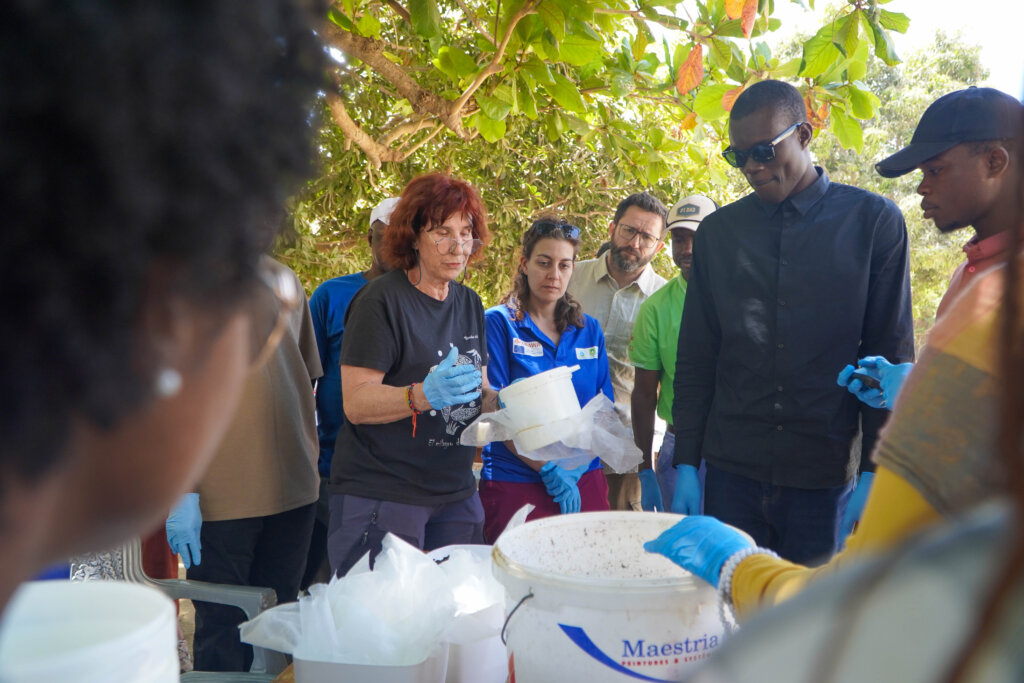CIRAWA consortium partners had the opportunity to deepen their understanding of vermicomposting during a hands-on workshop held in Senegal from 8-13 April 2025.
In a two-day workshop, Itziar Aguirre, Professor of Agroecology at the University of Seville, provided a comprehensive overview of the benefits of vermicomposting, followed by a practical session. Participants learned how earthworms transform organic waste into compost, which also known as vermicompost or worm humus and is one of the most valuable organic fertilisers on the market as well as the tools and conditions needed to produce it.
When this humus is used as the sole source of soil fertilisation – as is often the case in organic production – mature compost is preferred due to its efficient nutrient release. Fresh compost, on the other hand, is typically used for its biofumigant properties rather than as a direct nutrient source.

Itziar Aguirre introducing the concept in practice in Senegal. Source: REVOLVE
But the value of vermicompost does not lie only in its mineral content but also in the biological enrichment that the material gains as it goes through the digestive tract of the earthworms. This process introduces beneficial microorganisms and organic compounds such as vitamins, hormones, and enzymes, that makes then vermicompost a more versatile and high-quality fertiliser.
In addition to fertilisation, vermicomposting can support also some other soil-enhancing practices, such as mulching – applying compost as a surface layer to reduce water evaporation and conserve soil moisture – or as an erosion controller, as compost improves soil structure helping to prevent soil loss.
Vermicomposting has been increasingly recognised as a relatively easy and sustainable way to improve farming practices while reducing the environmental impact of agriculture. This workshop generated strong interest among CIRAWA partners, many of whom plan to replicate the training in their respective countries.
To support these future sessions, a Vermicomposting Guide will be co-developed and translated into English, Spanish, French, and Portuguese as part of the CIRAWA project.